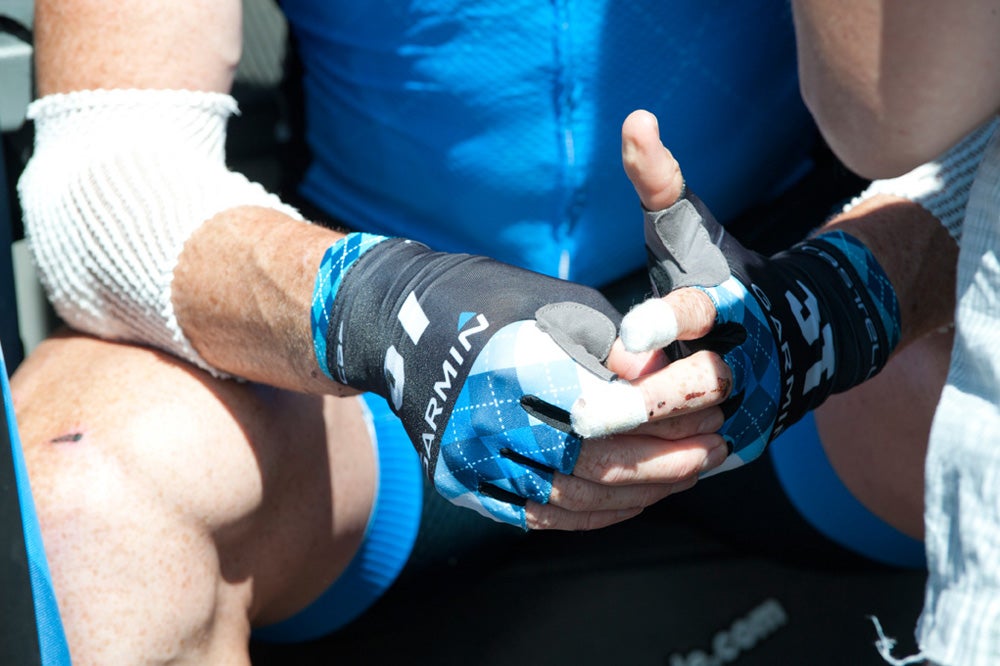Commentary: Truth commission could spare cycling from death by a thousand cuts

A truth commission might help stanch the sport's bleeding. Photo: Casey B. Gibson | <a href="http://www.cbgphoto.com">www.cbgphoto.com</a> (file)
Last week, to exactly no one’s surprise, Ryder Hesjedal admitted to taking performance-enhancing drugs. Forgive me for being jaded.
Cut. Cut. Cut.
The traditional gantlet followed his admission, which of course itself followed an accusation. The news stories, the statements, the condemnations, the very brief social-media outrage.
Drip. Drip. Drip.
And then things quieted down again. Until the next time someone admits to taking EPO while racing during an era in which EPO was pretty much jam on toast. Until then, it was but one more paper cut to the flesh of professional cycling, one more painful wound that bleeds into the world around it.
Since June 2012, when the U.S. Anti-Doping Agency sent its initial letter to Lance Armstrong, Johan Bruyneel and Co., announcing that the jig was up, the sport has been gashed time and time again, with each wound thoroughly and publicly salted by journalists, athletes and fans.
We cut the sport time and time again. It sells magazines, it actually is the news, it drives readership, and it’s irresponsible to ignore, because we’ve been covering it for years and should not stop now. It’s the very ugly business of the sport, and we’re all part of that business now, either as riders making the initial choices, journalists writing stories, or end users reading the content.
In some way, this sport’s blood is on us all. And it has to stop short of the fabled thousandth cut that leads to death.
It’s been said before, and it’ll be said again, by people with bigger voices than mine: It’s time for the truth-telling process to begin at the Union Cycliste Internationale level. And not just because it would lessen the steady drip of doping news on screens and shelves with one large unwrapping of misdeeds, but because it’s the right thing to do. The fans deserve it. The riders do, too.
Say what we will — and of course, we have — about the fact that riders like Tom Danielson and Dave Zabriskie were able to dope early in their careers and then go on earning comfortable livings as professional cyclists. Was it the wrong choice to take drugs, ethically? Yes. Was there a moral imperative within the sport at the time to do otherwise? Absolutely not. Have they paid a higher price than most who pedaled, earned money, and took drugs in that era? Yes, they have.
That may send many of the have-not professionals from that time into a blind rage — after all, these guys won big races and made much more money than your average North American pro — but the fact is that any instrument conceived now to air cycling’s dirty deeds so that the sport may move on will be just that, and not a way to right the wrongs of the EPO generation. Those profits won’t ever be returned; those races won’t ever be unwon.
It will be tough to cop to lying and cheating. But we’ve got a blueprint for how it might work. Garmin-Sharp has essentially been the beta version of a truth commission — those who came forward served six-month bans (yes, in the off-season) and took the initial round of public flogging that will likely befall any others who follow in their footsteps.
Would there be suspensions in a larger process? Probably not. Would guys get to keep, say, monument wins on their palmares? Maybe. Would that be a tough pill to swallow? Yeah, it would. But this is an ugly business.
Some, like Levi Leipheimer, haven’t been so lucky. Omega Pharma-Quick Step sacked him immediately last year after he admitted to lengthy use of PEDs. And while he may have been fired in part to make room for Mark Cavendish, it still came off as good old-fashioned, head-down, mouth-shut professional cycling.
With every news release, things get worse. With every half-assed omission, things get worse. The redacted names in USADA’s Reasoned Decision gave rise to a mentally paralyzing cynicism. It’s hard to suspend disbelief after all these years. We need a way forward.
It’s time for a broad, UCI-backed commission that protects those who admit to taking banned drugs and offers a window for clarity that we’ve yet to peer through. It’s time to bulldoze the past, because then, and only then, can we set a stricter standard for the future.
In the meantime, cycling will keep on bleeding.